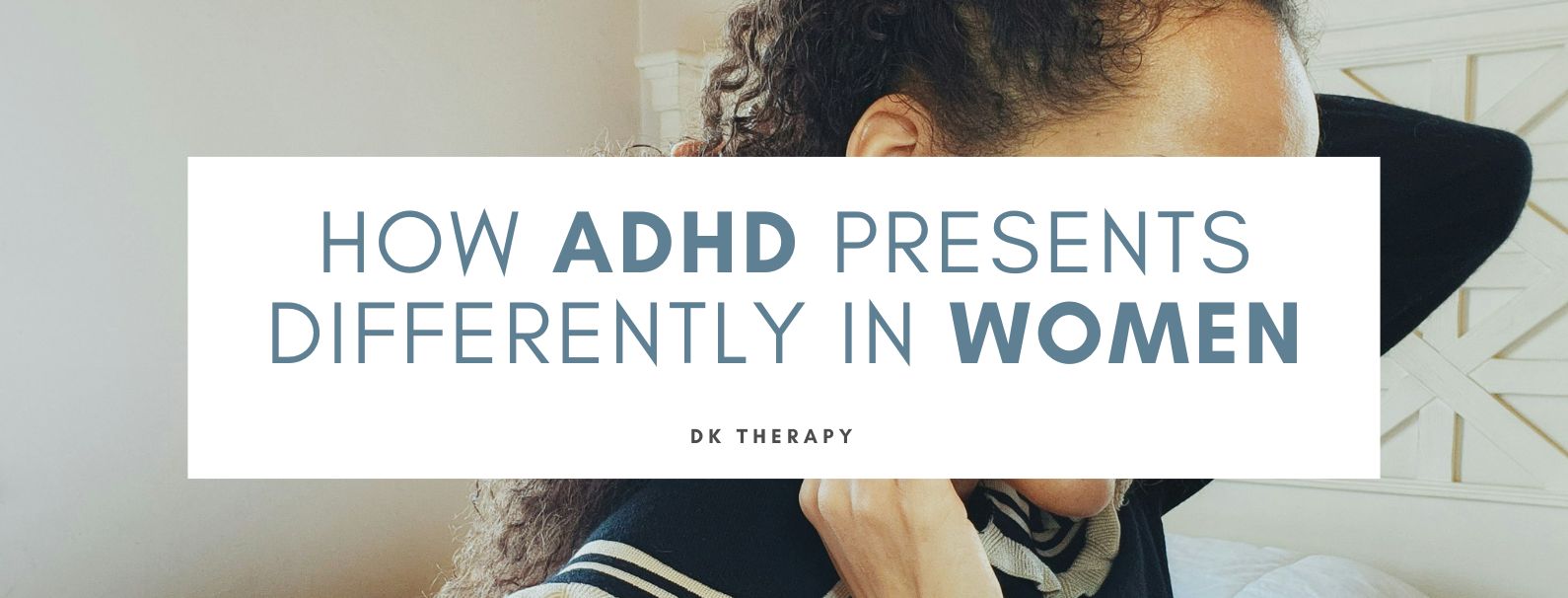
Attention Deficit Hyperactivity Disorder is a condition that affects people across the globe, regardless of age or gender. While ADHD is commonly recognized in children, especially boys, it’s important to understand that the condition also affects women. ADHD in women often presents differently than in men, which can lead to missed diagnoses, misunderstandings, and challenges in accessing appropriate care.
Let’s explore how ADHD manifests in women, why it’s often underdiagnosed, and the challenges women with ADHD face.
Women and the Quiet Nature of ADHD
 While hyperactivity and impulsivity are often associated with ADHD, women with this condition tend to display more subtle symptoms. Women are less likely to exhibit disruptive behaviors than men, who tend to show more noticeable signs of hyperactivity. Instead, women with ADHD may present as overwhelmed, anxious, or withdrawn during everyday tasks.
While hyperactivity and impulsivity are often associated with ADHD, women with this condition tend to display more subtle symptoms. Women are less likely to exhibit disruptive behaviors than men, who tend to show more noticeable signs of hyperactivity. Instead, women with ADHD may present as overwhelmed, anxious, or withdrawn during everyday tasks.
They often struggle with organization, sustaining attention, or completing responsibilities. Because their behavior may not seem disruptive, symptoms are sometimes misattributed to personality traits or mood disorders.
This quieter profile often leads to delayed or missed diagnoses, especially when symptoms overlap with anxiety or depression.
Emotional Dysregulation and Sensitivity
One of the most noticeable ways ADHD presents in women is through emotional dysregulation. Women with ADHD often experience intense emotions, including outbursts with no clear cause. These reactions stem from difficulty regulating emotion, which is linked to executive function challenges in the brain’s prefrontal cortex.
The Impact of Hormones on ADHD Symptoms
For women, hormonal changes throughout life can exacerbate ADHD symptoms. From puberty to pregnancy and menopause, hormone fluctuations can intensify the way ADHD manifests. Research indicates that the increase in estrogen during puberty can affect dopamine levels, which can make it harder for women with ADHD to focus or stay organized.
Estrogen influences dopamine (a neurotransmitter necessary for focus and motivation), so changes in hormone levels may directly affect symptom severity.
Similarly, during pregnancy, many women experience a change in the severity of their ADHD symptoms. Later in life, during perimenopause and menopause, a drop in estrogen can worsen symptoms.
Women and Multitasking
Another common challenge for women with ADHD is the expectation to multitask. Social and cultural pressures often ask women to juggle work, social lives, and their households. ADHD can make meeting these expectations a formidable struggle, as women with this condition may have difficulties with executive functioning (including organizing and prioritizing tasks).
This pressure can lead to chronic burnout, especially when paired with perfectionism or people-pleasing habits. Some women may rely on hyperfocus for productivity, but this can cause them to lose track of time or neglect other responsibilities.
The Importance of Diagnosis and Treatment
Given the way ADHD presents differently in women, taking time to understand the condition helps ensure proper diagnosis and treatment. Women are more likely to mask their symptoms, which often leads to a late diagnosis or misdiagnosis.
A delayed diagnosis means that many women go untreated for years, which can worsen mental health issues, relationship difficulties, and even struggles in their professional lives.
An accurate diagnosis can lead to the right support, including behavioral therapy, coaching, and sometimes medication. Stimulants like Adderall or Ritalin are common treatments, but non-stimulant options may be worth considering -depending on individual needs.
Support networks are a must for women with ADHD. Connecting with peers who understand their experience can offer validation and reduce isolation. Therapy and coaching designed for women can help build coping strategies and offer personalized support for managing the demands of daily life.
Help is Available
ADHD is often overlooked or misunderstood in women due to the subtler and quieter presentation of the condition. Early diagnosis and treatment are key to supporting women with ADHD in leading fulfilling, balanced lives. By raising awareness of how ADHD presents in women, we can ensure that more women receive the help and support they need to thrive.
If you’re struggling and you’d like to work with a therapist, please reach out to us at DK Therapy and schedule an appointment.




